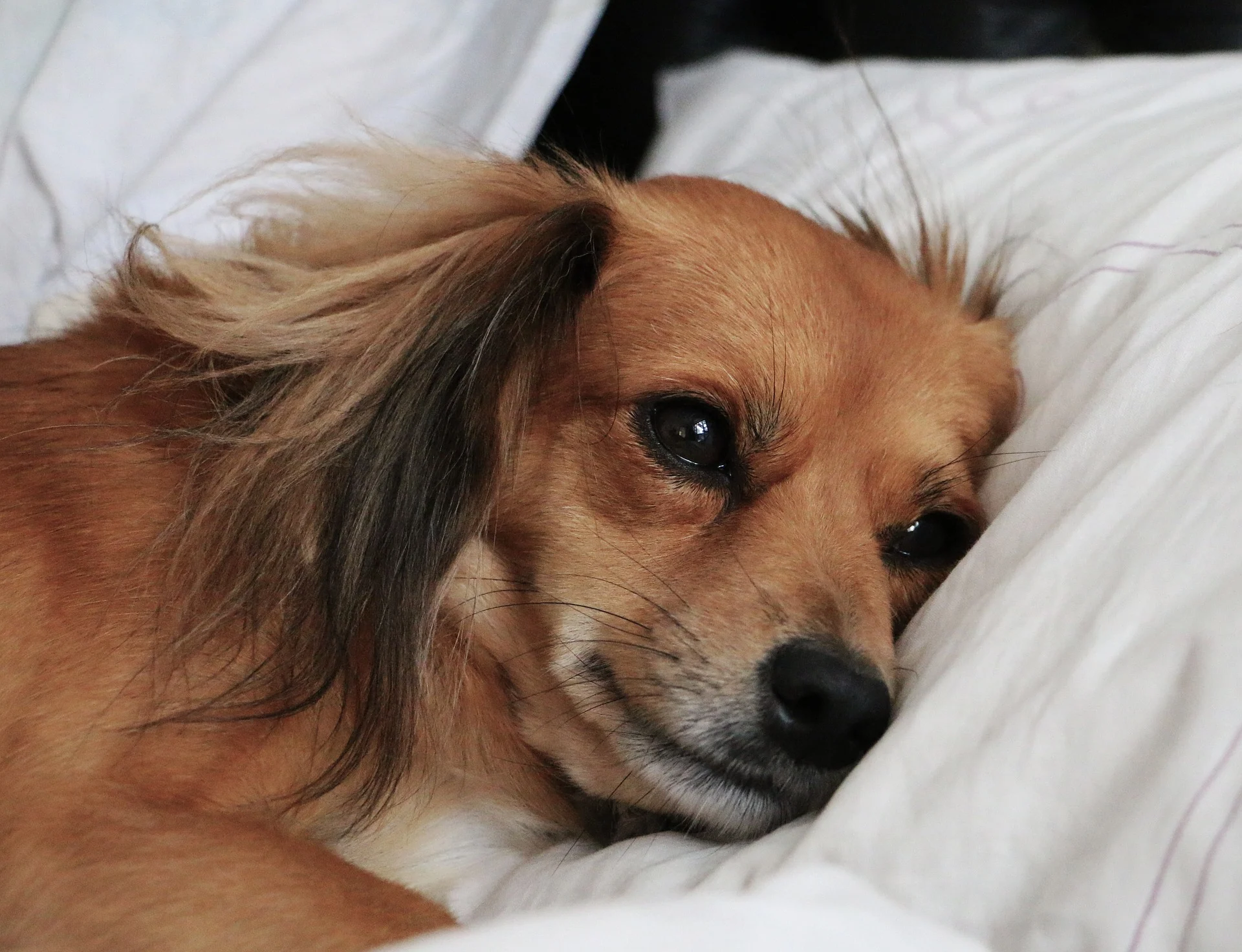Panting is basically a completely natural behavior of dogs. First and foremost, they breathe to regulate their body temperature. Unlike us humans, they have very few sweat glands and can therefore not lower their body temperature to the same extent if necessary. Instead, they begin to pant when they are warm. The hanging out of the tongue in combination with the increased breathing rate (about 300 to 400 breaths per minute) ensures that the saliva evaporates, which in turn creates evaporative cold and cools the animals. Heavy breathing during hot days is usually not a cause for concern. But, the situation is different when the dog is panting at night, because this is often a sign that he is not well.
Dog panting at night – possible causes
Nightly bed rest is also indispensable for our animal friends. Normally, the animals come to rest in the evening, with their pulse and blood pressure lowering. Likewise, their respiratory rate slows down to around 10 to 40 breaths per minute. However, some four-legged friends are very restless at night and start to breathe hard. In this case, it is important that you find out the cause. On the one hand, because it is usually an indication that the four-legged friend is not doing well. On the other hand, a permanently high pulse and too high body temperature can threaten long-term physical damage – such as cardiovascular damage. Let’s take a look at what causes the nocturnal sniffing and what you can do about it!
Too high temperatures
As already mentioned, dogs usually pant when they are too warm. However, this is not only the case in summer, because the room temperature can also be too warm for them in winter. This is the case, for example, if the dog bed is located directly next to the heater or the fireplace. To prevent the dog from becoming restless and not sleeping, you should not place the cot directly next to a heating source. Especially in the warm season, you should make sure that your pet gets enough cooling. A place on a cool stone or tiled floor, but also a special cooling mat provide soothing cooling.
Heavy exercise at bedtime
Many dog owners know it: During the day, there is often no time for species-appropriate exercise, which is why sports activities with the dog are moved to the evening hours. There is basically nothing against this, because four-legged friends in summer are usually better suited for outdoor games and fun. However, it should be noted that the animals still need sufficient time to “get back to normal temperature” afterwards. If you strain your dog too much before bedtime, it may well be that he gets restless and panting. In order for the four-legged friend to come to rest at night, it is worth moving physically strenuous activities to the early hours of the morning.
Feeding too late
Hearty meals at bedtime can burden not only the digestion of us humans, but also that of our pets. To avoid this, pets should not be fed too late. For dog feeding, it is generally recommended to divide the daily amount of food into several meals and feed them, for example, in the morning and at noon. But not only the feeding time, but also the food itself can ensure that the dog sleeps restlessly and does not. In particular, red, raw meat from large animals (e.g. buffalo or bison) are known to increase the heat production of the body and cause severe breathing. Therefore, refrain from feeding red, raw meat, especially in the evening hours. Instead, you can offer your pet a chewing item such as a chewing root or a chewing antler. This ensures welcome relaxation and can prevent the animal from getting nervous at night.
Mental causes
A dog does not sleep at night when his mental state is impaired. Stress in particular causes the pulse to shoot up and intensifies breathing. Stress can be triggered, among other things, by anxiety or nervousness, but also by moments of horror. Some animals are afraid in the dark, others are frightened by loud noises and become nervous. Some fur noses, on the other hand, are very sensitive and also react to changes in routine with restlessness – the dog panting at night. To calm him down, it can often already help to provide some lighting or close the window. If he is not allowed to sleep in bed with you, place his dog bed next to it. Most animals feel safer near their caregiver and therefore come to rest better at night.
Physical condition
A dog sometimes pants at night due to pain, as he is no longer distracted from exciting everyday life at this time. The causes of pain are manifold. Both diseases of the internal organs and joint problems or injuries can cause them. Heart and lung diseases, circulatory problems and fever are also possible. Therefore, if you can rule out all of the above (harmless) causes, you should definitely consult a veterinarian and have your four-legged friend checked through.
Dog panting at night: usually harmless – but not always!
Your dog panting at night? If your animal companion is restless in the evening and breathes heavily, you should not ignore this. Often the causes are harmless in nature, such as an unfavorably located sleeping place or too high temperatures. However, a four-legged friend also pants at night when he has physical discomfort and pain. For this reason, it is important to determine the cause and take appropriate countermeasures.

